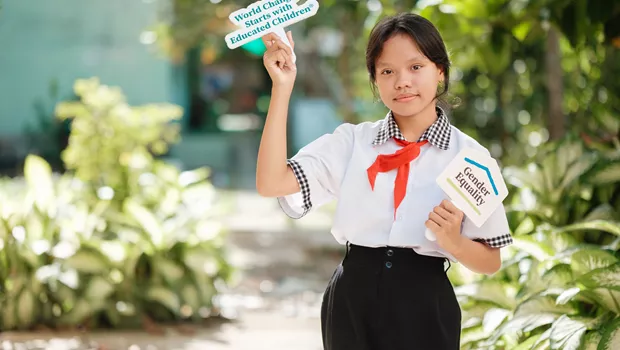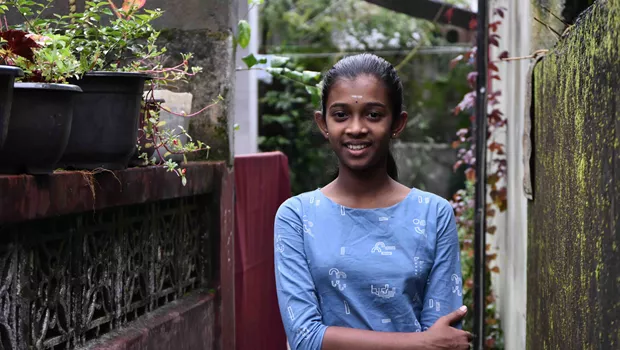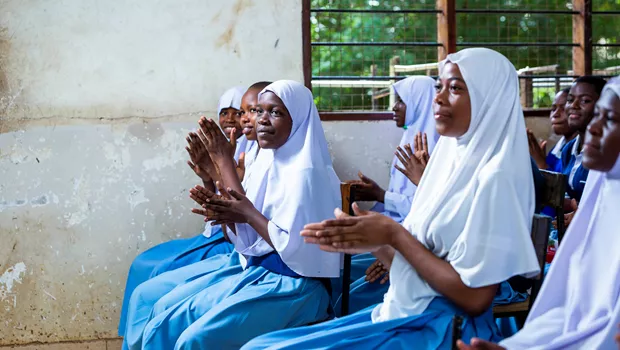Meet the Team: Ruksana Sultana, Girls’ Education Program Manager of Bangladesh
December 05, 2017
In 2017, Room to Read's Girls' Education Program reached an exciting milestone of supporting 50,000 girls around the world. We couldn't have done it without our incredible team members - one of whom is Ruksana Sultana, the Girls' Education Program Manager of Bangladesh. She's been an invaluable leader since 2009. Let's get to know her!

What inspires you most about the program?
I have been working at Room to Read since February 2009 when the Girls’ Education Program first started in Bangladesh. Having 13 years experience in the education sector, I’ve always cherished the ability to improve the quality of education in my country. My father was a Government Education Officer, so from an early age I had a keen perspective on the educational system and that helped pave my career.
In regards to working with the Girls’ Education Program, I am inspired to get the chance to work with marginalized sandbar island girls and disadvantaged communities who really need our support. When we started the Girls’ Education Program in Bangladesh, we could not find any girl who passed the Secondary School Certificate examination from that region. Our challenge wasn’t to change the statistics, but to change the mindset of the parents, as well as the girls. Over the last five years we have continued to support and motivate girls and their parents. That is why we had an incredible accomplishment, where 96% of girls passed the SSC exam in 2014 and all of them have enrolled in grade eleven. It inspired me to put extra effort towards helping girls think about their life and education.
Ruksana Sultana
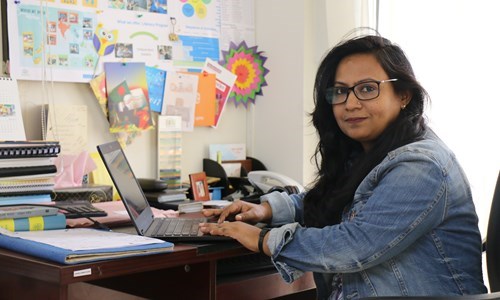
Why do you think girls’ education is important?
In our country, though girls’ enrollment has increased in the secondary education level, completion rate is still poor. Early marriage, financial poverty, child labor, sexual harassment, and lack of parental support are big issues for girls at higher secondary and tertiary education level. Girls in the sandbar islands are most vulnerable due to geographical and cultural barriers. Our Girls’ Education Program is a comprehensive program where we can provide support to ensure gender equality in secondary education. We want these girls to demonstrate in their daily lives that they can thrive despite all barriers marginalized sandbar island girls face.
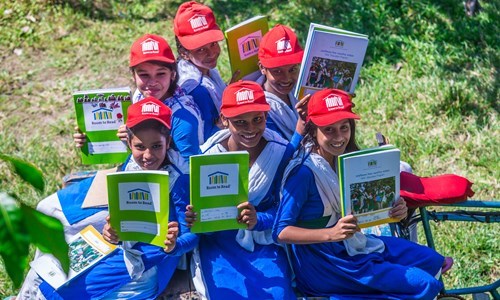
Tell us about a program accomplishment you're proud of?
In the early days of planning Bangladesh’s Girls’ Education Program, one of our school teachers said that the program would not succeed after grade eight, because most of the girls drop out due to their inability to pass the public JSC (Junior School Certificate) exam. We were also concerned about parental support, because most of the parents are not educated and are busy working in the crops fields. Nonetheless, we took on the challenge and said that we would prove ourselves by our work, not our word. Our social mobilizer and larger team worked hard to overcome these challenges. Now, nearly two years later 97.7% girls in our program passed the JSC exam and 90% parents are attending the annual parental meeting.
I feel proud and inspired when I see one of my social mobilizers, Lovely Khatun, who is 50 years-old, but still working very hard for the girls. She always demonstrates extreme passion in her work. Every day she needs to walk minimum 8 to 10 kilometers. Her family members asked her not to work anymore due to her age, but she always says,
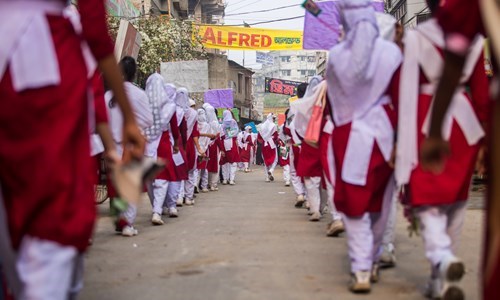
“These girls are my daughters. I have been supervising them since they were in grade 5 and 6. I want to see them reach university and become role models for other girls in the society.”
When SSC results were published, she was very weak due to an injury from a car accident. In spite of that, she called teachers and girls to see if they passed. When she came to know that all of the girls passed except one, her heart was full of joy and eyes were full of tears. She called me that day and I could feel the happiness in her heart and attachment to the girls in her voice.
Want to support our work in Bangladesh? Become a monthly contributor here.
Invest in children's education today.

